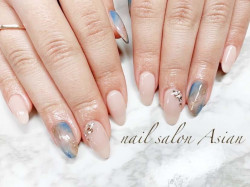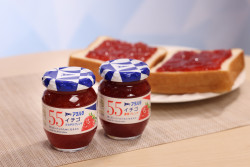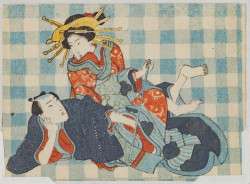
Originally published on metropolis.co.jp on April 2013

Before I came to Tokyo I lived in Los Angeles, New York City, Las Vegas, and Paris, France. I have spent stretches of time in Tunis, Amsterdam, Stockholm, London, and Berlin but I have never found refinement as in Japan—such modernity so heavy with time. People ask me what it’s like to live in Tokyo and I tell them it’s civilized. I have never felt more like a human being than in Japan, dreaming my Japanese dream.
But then, I was born in the United States, a fairly recent phenomenon as far as being born is concerned. And a somewhat different dream.
It was only about 250 years ago that my forefathers began their experiment, murdering the natives of one continent and stealing many from another to profit by their misery and loss. And it was only about 70 years ago that they visited atomic annihilation upon 100,000 Japanese. This is my historical context. But the list of crimes a nation compiles doesn’t negate its achievements, I’d like to think, nor condemn its yet unborn. Thankfully, a lot has changed in America in the past 250 years. Thankfully in Japan, with few exceptions, almost everything is the same.
To be Japanese is to be a part of something epically greater than oneself. To be American is to be special and unique.
Both of these statements are bullshit of course—but for better or worse it’s the type that sticks.
As children in America we are told by movies and TV that we are heroes waiting in the wings. We could be president some day—who knows? We could get rich, really stupid-rich, and save the planet from asteroids. Later, after realizing life is vastly more complex and interesting, we spend the rest of it searching for the community we never had, seeking to belong finally to something bigger than our not-so-special selves. If you aren’t an American, I imagine your sympathy runs short. If you are, you know how exhausting it can sometimes be.
The Japanese spare themselves the pretense; they understand they will thrive only as part of a greater whole. Conversely, they spend much of their adult years wondering what it is that makes them different from everybody else.
“Whatcha got?” We seem to ask each other in the States all the time; reaching out across aisles in planes to nudge a stranger’s arm, to share a smile, or some inanity about the captain’s announcement, the food, the stewardess’s impossible hair. This kind of casual friendliness is nonexistent in Japan and after five years of living here I’ve gotten so used to it I’m shocked when I get on a plane back home and it happens to me. But as much as American propriety baffles me, it’s also a source of wonder, for as we inherit it we tend to seek it out in others, no matter what they look like or where they may be from. Is this why we come off as such eternal children to the world? Is this why rock and roll couldn’t have happened anywhere else?
One thing’s certain: A stranger addressing you for no good reason without first excusing themselves is unheard of in Japan, and after getting used to it I find it rather respectful and nice. Likewise, stealing someone’s bicycle because it’s not locked down with three padlocks is also unheard of, and also rather respectful and nice—no getting used to it required. Clearly, human beings are the same the world over. But some human cultures are better than others at serving their collective good.
First timers in Japan start to notice everything tends to work here and nothing is left neglected on account of reasons anybody could understand. This is because the Japanese never stop trying to prove to each other they are Japanese.
We still have a lot to learn from each other. I think that’s pretty dreamy. And though my time as a guest in Japan has enriched me beyond what I’m capable of putting into words, when I’m at my favorite sushi-ya, the sake never stops me from trying. Usually in the form of a bad haiku, discovered in the morning, scrawled across the inside of my arm. This one’s called “Katsuo:”
O nameless hue!
Ancient red and bluer blue
Than Ocean’s flesh and Glacier ice
O taste of Time
On sour rice!







